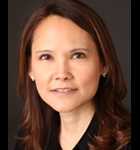Author Interviews, Outcomes & Safety, Primary Care / 28.05.2019
Is it a Good Idea For Patients To Read Their Doctor’s Notes?
MedicalResearch.com Interview with:
Janice D. Walker, RN, MBA
Beth Israel Deaconess Medical Center
MedicalResearch.com: What is the background for this study?
Response: In 2010-2011, we launched a pilot intervention in which a limited number of primary care doctors shared the notes they wrote about an office visit with their patients via secure online portals they accessed through their health systems; this practice became known as open notes (our program is called “OpenNotes”). We then surveyed patients and their primary care providers to get feedback on their experiences and published the results in the Annals of Internal Medicine in 2012. After the study, the three large health systems that participated—Beth Israel Deaconess Medical Center in Boston, University of Washington Medicine in Seattle, and Geisinger in rural Pennsylvania—made open notes available across ambulatory specialties.
In this paper, “OpenNotes After 7 Years: Patient Experiences with Ongoing Access to their Clinicians’ Outpatient Visit Notes," we wanted to examine the ongoing experiences and perceptions of patients who read ambulatory notes written by a broad range of doctors, nurses and other clinicians. We did this by surveying patients who had been seen in a hospital or community based practice, were registered on their patient portal, and had at least one note available to read in a recent 12-month period. The main measures include patient-reported behaviors and their perceptions concerning the benefits and risks of reading their visit notes. (more…)



